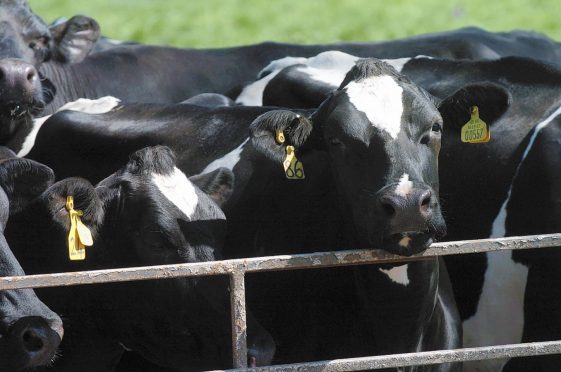Poor dairy farmer confidence and a lack of trust in the supply chain has been linked to warnings of butter and cream shortages later this year.
Earlier this week the boss of European dairy firm Arla, Peder Tuborgh, said a lack of milk in the market could lead to shortages of dairy products such as butter and cream, and subsequently price rises to consumers, by Christmas.
NFU Scotland (NFUS) policy manager George Jamieson said the warning would come as no surprise to those working in the industry.
He said Scotland’s dairy farmers were “weary of the simple lack of fairness, the lack of respect, and the lack of collaboration to manage the key challenges of volatility and wafer thin or non-existent margins”.
According to NFUS, dairy commodity prices have risen by 17p a litre since last summer, however the average farmgate price has only risen by 7p a litre in the same period.
“This clearly is not reasonable,” said Mr Jamieson.
He said dairy farmers were being forced to carry the risk of volatile commodity markets on behalf of the entire supply chain, including the consumer.
“In a country so exceptionally well placed to produce milk it is shameful that the dairy supply chain and government cannot develop constructive solutions, beyond farmers taking the hit every time the going gets tough,” said Mr Jamieson.
NFUS has long aruged that milk processors are too quick to push dairy commodity price reductions onto farmers, and too slow to increase farmgate prices once markets improve.
Mr Jamieson said: “The supply chain must work together to resolve this as farmers who have faced unprecedented losses over the past two years will lose faith due to an inability to plan ahead nor have any faith in investing for the future, even those who can raise the funds.
“It is fundamental to build trust, introduce much better contracts, pricing and volume transparency, and obtain longer-term planning across the supply chain. We need much smarter mechanisms that treat the primary producer as a valued partner, who like processors and retailers, need as much business certainty as can be achieved.”
Mr Jamieson said the union was working closely with its counterparts in other parts of the UK to call for “urgent action” on price and volume reporting, transparency, contracts, pricing and risk management.
He called on the Groceries Code Adjudicator to deliver a “modern, efficient, progressive dairy sector, rather than the almost ‘feudal’ nature of the current model, which relies too much on the assumption that dairy farmers will carry on regardless.”
